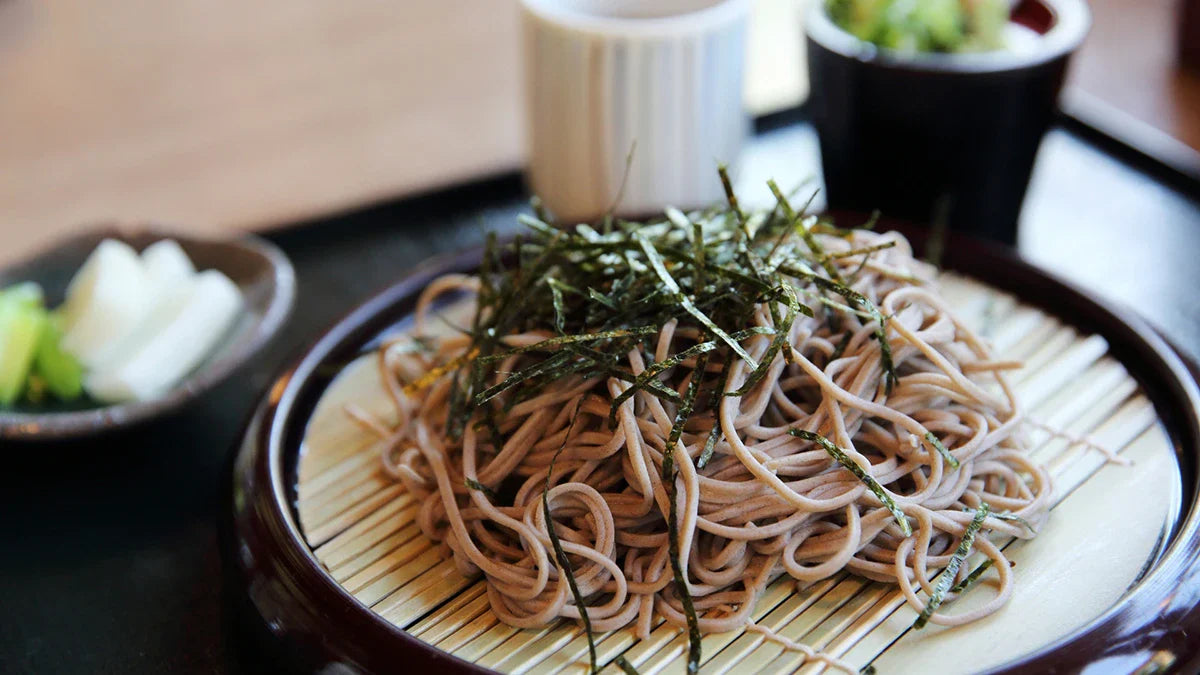
Japanese cuisine has surged in popularity worldwide, and it’s not just because of the delicate flavours and artful presentation. Japanese cooking’s emphasis on freshness and seasonal ingredients has earned it a place in the culinary spotlight as well as in conversations around healthy eating. As more people explore Japanese cuisine, health-conscious foodies everywhere are asking: is Japanese food good for you?
This guide explores what makes Japanese food both delicious and nutritious, breaking down ingredients, methods, and health benefits, and clearing up a few common misconceptions – like whether sushi is secretly fattening! We’ll also spotlight ingredients like authentic wasabi and show how premium products from The Wasabi Company can enhance both flavour and wellbeing.
How healthy is Japanese food?

Japanese food reflects deep-rooted traditions, seasonal awareness, balance, and simplicity based on a foundation of a handful of humble ingredients that, when combined with thoughtful preparation, create meals that are both nourishing and satisfying.
Key ingredients in Japanese food
At the heart of Japanese cooking are staple foods like rice, seasonal vegetables, seafood, and, of course, wasabi. These ingredients combine to form a diet rich in nutritional value.
- Vegetables (especially sea vegetables and pickles) add fibre, vitamins, and minerals.
- Seafood offers lean protein and omega-3 fats.
- Miso and soy provide plant-based protein and probiotics.
- Wasabi adds potent flavour and a range of health benefits.
- In a balanced combination with the above ingredients, small portions of rice can provide slow-release carbohydrates.
Typical preparation methods

Healthy techniques such as steaming, grilling, and simmering are favoured in Japanese cooking. Oils are used sparingly and flavours are built with broths or fermentation processes. Bento-style meals also emphasise a balanced plate of small portions from various food groups.
Japanese food health benefits
Is Japanese food fattening? There’s a common misconception that it is. But with its emphasis on fresh ingredients, balanced portions, and nutrient-dense food groups, Japanese cooking can easily support a healthy lifestyle.
High in nutrients, low in saturated fat
Plates of rice, fish, vegetables, and protein create meals that are satisfying and nutritionally dense. Because saturated fats are limited, these dishes can support heart health and weight management.
Fermented foods and gut health
Miso, vinegars and pickles are all fermented, aiding digestion, gut flora diversity, immune function, and nutrient absorption. Gut health is a crucial player in overall well-being, making these foods a winner for the health-conscious foodie.
Bento-style portion control
Japanese meals tend to be modest in portion to reflect mindful eating habits and limit overeating. Smaller portions of different foods allow for more variety without overindulgence.
Is Japanese food fattening?

Most Japanese food is surprisingly light and lean when enjoyed as part of a varied diet.
Debunking the misconception
Sushi, ramen, and tempura all get a bad rap, and while these can be calorie-rich, they are exceptions rather than the rule when it comes to Japanese cuisine in general.
- Sushi: Traditional nigiri or sashimi is low in fat and nutrient-rich. Choose sushi options with vegetables, fish, and moderate rice to avoid high calorie eating. Avoid overly sweetened sushi rice and deep fried fillings such as prawn tempura for a lower calorie alternative.
- Tempura: This deep-fried delicacy can certainly bump up the calorie count, but enjoyed sparingly as an occasional treat, it adds variety and enjoyment to a well-balanced diet.
- Ramen: Broth-based ramen dishes with veggies and lean protein can fit within a healthy diet, but the key is to avoid the seasoning packets which accompany most cheap store bought ramen mixes. These are usually high in sodium and other additives. Our ramen sets use only natural ingredients like miso, natural dashi stock and soy sauce with no added salt.
Learn more: All About Sushi and All About Japanese Noodles
Homemade vs takeout Japanese meals
Home-cooked food makes all the difference. At home, you can reduce the sodium, choose brown rice, limit oil, and load up on vegetables – bonus points if you use home-grown fruits and vegetables! Compared to takeaway or restaurant food, cooking dishes at home can be significantly healthier and certainly make Japanese food less calorific.
Is wasabi healthy?

No discussion of Japanese cuisine would be complete without a closer look at wasabi, an iconic Japanese ingredient with a reputation for heat. While most people are familiar with the bright green paste that accompanies sushi, few know that authentic wasabi is worlds apart from the imitation blends commonly served in restaurants.
Authentic wasabi
Many products labelled ‘wasabi’ are actually horseradish mixed with mustard and artificial dyes. These imitations deliver a harsh, nasal heat that can overpower a meal. By contrast, the authentic wasabi, available at The Wasabi Company, is grated fresh from the stem, offering a cleaner, more refined flavour that enhances rather than masks a dish.
Potential health benefits
Real wasabi contains naturally occurring compounds such as isothiocyanates, which have been studied for their antimicrobial, anti-inflammatory, and digestion-supporting properties. While it's not a miracle cure, incorporating fresh wasabi into your meals can be a flavourful way to add a gentle health boost and avoid synthetic additives or excessive salt.
Elevate healthy dishes
A small dab of real wasabi can completely transform a dish. Whether you’re topping a perfectly grilled fillet of fish or adding a kick to steamed greens, the versatility of wasabi makes it a pantry essential for any health-conscious cook. The Wasabi Company’s fresh wasabi stems, pastes, or dried powders make it easy to bring this unique ingredient into your kitchen and enjoy its benefits in everyday meals.
The final bite
So, is Japanese food good for you? Absolutely. When it’s crafted with quality ingredients, mindful preparation, and reasonable portioning, Japanese cuisine balances flavour and healthy eating beautifully.
If you’re curious about bringing the taste and benefits of real wasabi into your cooking, explore The Wasabi Company’s range of premium Japanese ingredients – the perfect products for health-conscious cooks!
Don’t know where to begin with your healthy cooking journey? You can also discover our healthy Japanese food recipes for inspiration.

